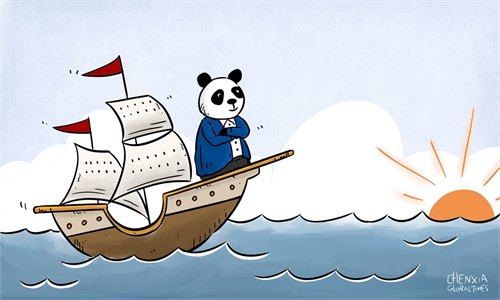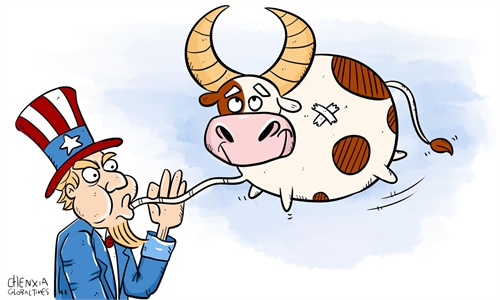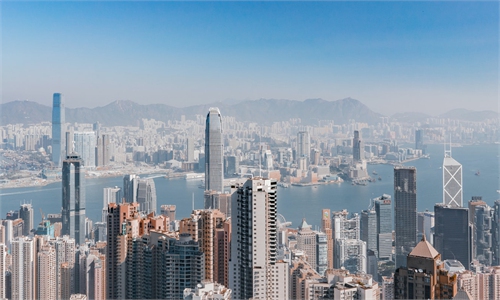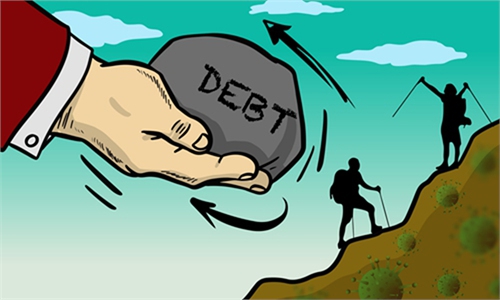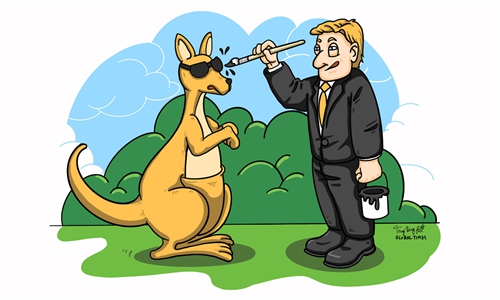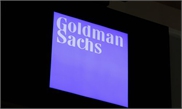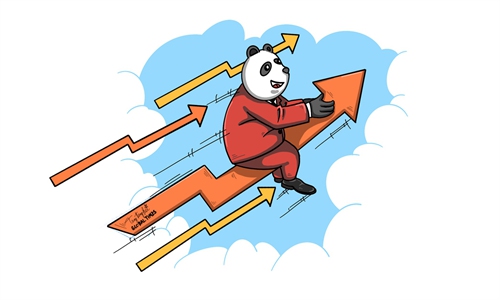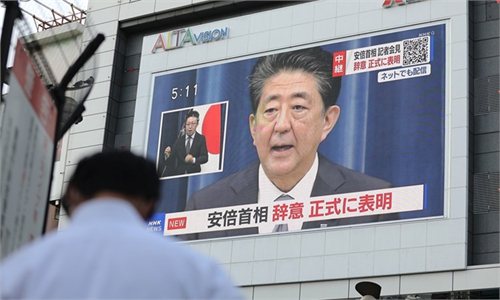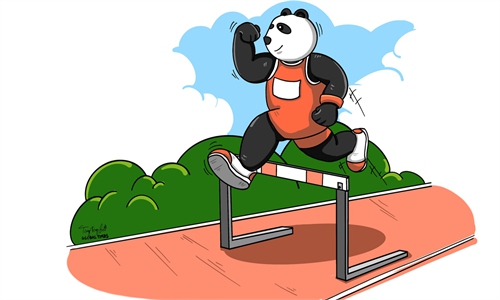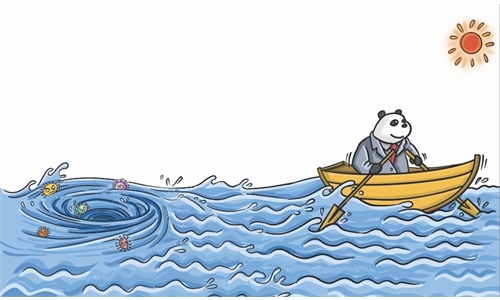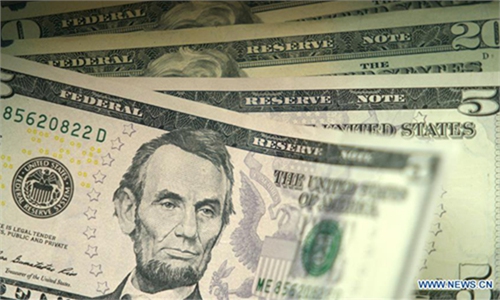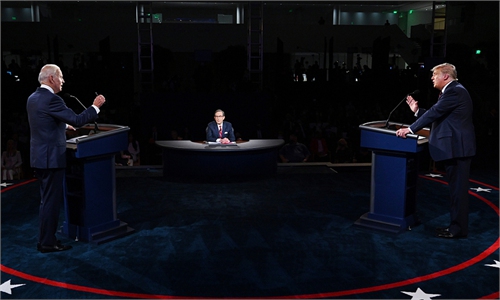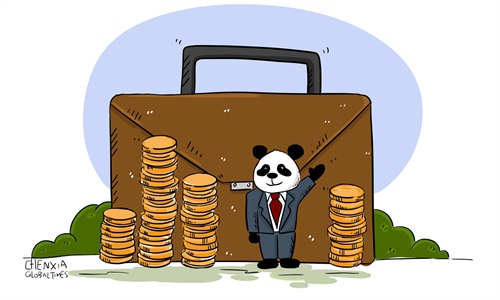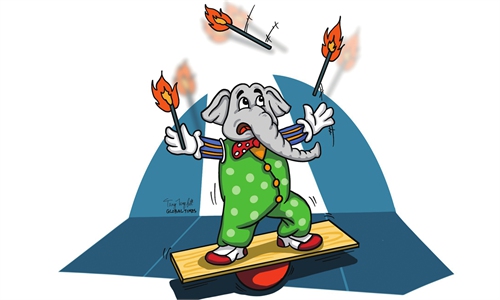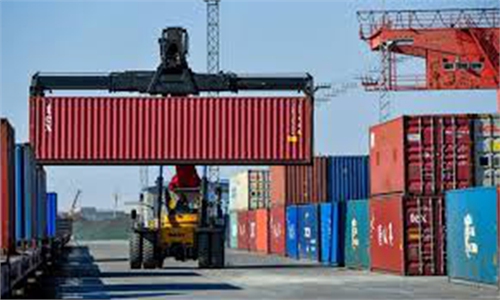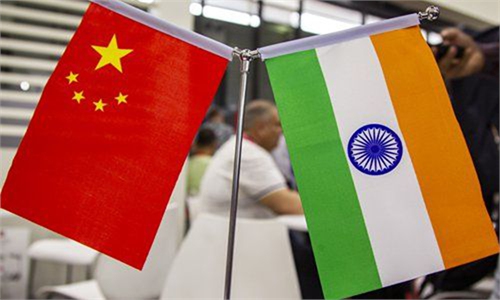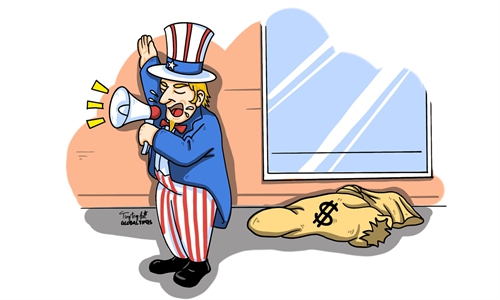China's industrial self-reliance will bring new opportunities for Asia-Pacific economies
The "dual circulation" strategy aims to build up an open and inclusive system in which internal and external markets boost and support each other.
Krach overstates Clean Network initiative claims
Amplifying America's anti-China war cry, several US politicians have been dashing around the world, fabricating facts and creating political gimmicks they think will help their own interests. US Undersecretary of State Keith Krach is just such a politician. Keenly pushing a so-called Clean Network initiative that targets Chinese telecom producers, he claims that the program has successfully strangled the development of Chinese companies.
HK needs to consolidate position as international financial center
After major economic indicators showed a weak performance for more than one year, the Hong Kong Special Administrative Region's (HKSAR's) exports rebounded the most in nearly two years in September on the back of a recovering Chinese mainland economy.
Zambia debt woes expose difficulties in international assistance
Zambia has reached a deal to defer debt repayments that were due this month on a loan from the China Development Bank (CDB), the Reuters reported.
Impenitent anti-China forces risk Aussie cities' growth opportunity
Despite a spiraling downward bilateral relationship, some anti-China forces in Australia have spared no efforts to keep expanding the ideology-biased hostility into every aspect, even normal city-level communications.
Goldman Sachs' involvement in 1MDB scandal is a warning for financial sector
Goldman Sachs recently agreed to pay more than $2.9 billion to regulators around the world to resolve probes into its central role in the 1Malaysia Development Berhad (1MDB) debacle, CNBC reported.
Rubio threat cannot overcome bright future of Chinese firms
The US Republican Senator Marco Rubio has upped his attacks on Chinese firms, trying to cut ties from the US capital market of certain Chinese companies. This cold war mentality shared by some US politicians goes against market principles and is doomed to fail in the long run.
As Abe steps down, did Abenomics succeed?
Former Prime Minister Shinzo Abe's resignation could significantly alter Japan's economic policies. When Abe took the reins in December 2012, the economy was beset by three intertwined problems: large annual budget deficits; persistent deflation, which made reducing debt ratios nearly impossible; and weak economic growth since Japan's equity and real estate bubbles popped in the early 1990s.
Discrediting China-Africa cooperation won't succeed
The African country of Zambia recently sought debt restructuring against the backdrop of the COVID-19 pandemic sweeping the world, while some Western media and politicians again tried to hype some developing countries' debt problems and defame China's efforts to strengthen cooperation with Africa.
Dual-circulation strategy becomes new road map of growth
The fifth plenary session of the 19th Communist Party of China (CPC) Central Committee, which began on Monday in Beijing, has attracted global attention.
Minor resurgence of virus won't affect nation's recovery
As winter draws near, concerns are rising that the risk of COVID-19 resurgence may undermine China's prospects for a hard-won economic recovery, especially after Kashi in Northwest China's Xinjiang Uygur Autonomous Region recently reported an outbreak that medical experts suggest may have connection with the cold weather.
Will the pandemic spell the end of US dollar's dominance?
The US dollar has maintained international payment dominance for decades. To this day, the dollar remains the primary global reserve currency, and plays a prominent role in global trade and financial flows.
US' final presidential debate shouldn't strangle possibility of China-US cooperation in COVID-19 fight
The second and final presidential debate before the 2020 US election, between Republican President Donald Trump and Democratic challenger Joe Biden, will be held on Thursday night US time. The first debate was so "hostile" and "chaotic" that the mute button introduced by the debate commission has become a hot subject for media outlets on the eve of the debate.
Targeted rules for foreign capital expected in new 5-year plan
Against the backdrop of an increasingly complex global environment, the upcoming launch of China's 14th Five-Year Plan (2021-25) has drawn extensive attention. Among a series of expected highlights, more targeted and sound policies to attract foreign capital are expected, especially when China has committed to deepen reform and opening-up, and foreign capital has a golden opportunity to grow amid China's improving business environment.
Indian economy to suffer losses if politicians play Taiwan card
Taiwan is an inalienable part of China's territory, and India, as a country having diplomatic relations with China, should be aware that playing Taiwan card to challenge China's red line will have severe consequences.
China's export control law provides legal guarantees for fair trade principle
China has passed the Export Control Law of the People's Republic of China on Saturday. The law, which will take effect on December 1, stated that if any country or region abuses export control measures to endanger China's national security and interests, China can take reciprocal measures based on actual conditions.
More Chinese investors abandon hopes for Indian market as restrictions rise
Indian Prime Minister Narendra Modi welcomed Canadian investors with open arms at an investment promotion conference in Canada earlier this month. While New Delhi is trying to attract more investors from economies like Canada and the EU, it has not reduced its resistance to Chinese investments.
Countries to find US telecoms promises are bounced checks
In order to further assault Chinese telecom producers Huawei and ZTE, the US has come up with a new idea to lure developing countries away from using equipment of these Chinese companies by offering them loans and other financing, according to media reports.
